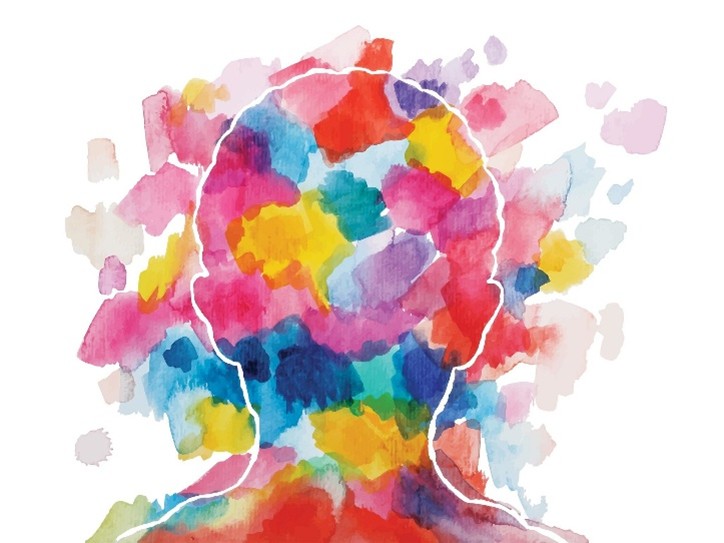Hello and welcome to our May 2025 news! This month, I am sharing some ideas about emotional wellness and the different angles there are to come from for achieving balance and a sense of emotional vitality.

- What do we mean by emotional or mental wellness?
- What are some key areas to support for more balanced energy and mood
- Hyperbaric Oxygen Therapy – how can it help?
After years of supporting people with improving their health, one thing seems clear: When it comes to emotional or mental wellness, what people often truly desire is to feel a sense of emotional energy, enthusiasm, and resilience—the kind that allows them to be living a life they love.
Feeling emotionally balanced might also speak to how well we handle stress, relate to others, and make decisions. No one expects being emotionally well to mean we’re always happy—it means we are aware of our emotions, can cope with challenges, and bounce back from setbacks.
Key Areas to Support for Affecting Mood and Emotional Vitality
(this is not an exhaustive list, and everyone is different so please seek advice from your health care practitioner – this is not intended to be medical advice)
There are many factors that can contribute to feelings of anxiety, depression, and a general lack of feeling emotionally settled. Chronic stress, worrying about the future or ruminating about the past are commonly known factors we can talk about in our next newsletter in June (living a vision driven life- re wiring your thoughts for living a life you love). For now, let’s look at some additional factors that can affect your emotional wellness and how to support these areas.
Nervous system
Chronic stress, being overbooked, watching too much news, and general overwhelm can keep your nervous system in state of fight or flight. This can cause feelings of anxiety, depression, brain fog and fatigue.
- Nutritional Support for the nervous system – Omega 3 fish oils, Calcium and Magnesium, B vitamins, nerve tonics like Tulsi, St. John’s Wort, Chinese Skullcap, Valerian, and Kava
- Foods – Fatty fish, nuts and seeds, broccoli, leafy greens, turmeric, eggs, berries
Adrenal glands
Adrenal glands are a hormone gland that sits on top of each kidney. They help balance your energy, regulate your blood sugar, assist in reducing inflammation and are a major player in balancing our response to stress– when reduced in function you can feel tired, lowered interest/motivation, poor sleep, lack of ability to cope with change, lack of endurance and poor focus.
- Nutritional support – B vitamins, trace minerals, Adrenal extracts, Ashwaganda, Rhodiola, Ginseng, Rhemania
- Foods – stay hydrated 😊 and, green leafy vegetables, sweet potatoes, celery, grass fed beef/organic chicken, eggs, avocados, citrus fruits, sea salt and watch the sugar and caffeine!
Thyroid gland
Maintains proper metabolism (cellular function and weight management), body temperature regulation, supports digestion, balances energy and plays a role in heart rhythms. – when reduced function you can feel lethargic, be constipated, have hot flashes, weight gain, poor sleep and sometimes heart palpitations (irregular heartbeat).
- Nutritional Support – B vitamins, iodine, thyroid extracts, ashwagandha, black licorice (be careful if you have high blood pressure), selenium, chromium and paying attention to adrenal health.
- Foods – lentils, chickpeas, black beans, seaweed, dulse, cooked broccoli, cauliflower and brussel sprouts. (avoid too many raw cruciferous vegetables as they can cause enlarged thyroid), brazil nuts (don’t eat too many as you can take up too much zinc and cause rashes- 1 or 2 a few times per week is good!)
Stomach
Breaking down foods and allowing nutrients to become available to your body. – with reduced function you can experience gastric reflux coming from poorly digested foods, stomach pain, gas and bloating leaving you feeling low energy and low mood.
- Nutritional Support – enzymes, liquid aloe, hydrochloric acid, chlorophyll, not overeating during your meals, wait 1 hour before lying down after eating
- Foods – organic bone broth, fermented foods (sauerkraut, kefir, miso, kimchi), oatmeal, berries, try not to drink too much water during your meals, chew slowly and eat mindfully.
Small Intestine
Helps to absorb the nutrients that your stomach and saliva have broken down. – with reduced function you can experience bloating, brain fog, fatigue, leaving you feeling lack of endurance and low energy.
- Nutritional support – enzymes, chlorophyll, Vitamin D, Butyrate, probiotics, zinc, glutamine, magnesium
- Foods – prebiotic foods (feeds good bacteria): garlic, onions, leeks, asparagus, bananas, chicory root. Probiotic foods (contain beneficial bacteria): yogurt, kefir, sauerkraut, kimchi, miso, kombucha. Fiber-rich foods: oats, flaxseeds, chia seeds, fruits, and vegetables support motility and microbial diversity
Blood Sugar
A balanced blood sugar helps keep your brain feeling sharp, muscles feeling toned and your energy feeling stable. – when blood sugar is an issue you may feel low mood, irritable, brain fog, anxiety and poor focus.
- Nutritional support – Pancreatic enzymes, inositol, gymnemma herbal supplement
- Foods – explore eating style that is right for you (small frequent meals, intermittent fasting), getting a balance of healthy proteins and fats each day.
Low Grade Toxicity
Subacute heavy metal toxicity (mercury from dental fillings, lead in makeups and older buildings), and mold exposure. These toxins may cause irritability, moodiness, nervousness, depression, lack of motivation, insomnia, fatigue, headache, loss of memory, numbness of lips, hands, and feet
- Nutritional support – gentle binders like chlorella, cilantro, bentonite clay, glutathione, NAC, liver detox support like dandelion, milk thistle, choline, whole food vitamin A and C for better circulation through the detox organs
- Foods – cilantro, garlic, cruciferous vegetables, flax seeds, chia seeds, psyllium husks
Chronic low grade gut imbalances
Yeast/candida, parasites, and bacterial overgrowth in the gut are examples of imbalances that can lead to inflammation affecting lungs, joints, brain.
- Nutritional support – you may want to seek guidance from an experienced provider for reducing yeast, parasitic, or bacterial over growth.
HYPERBARIC OXYGEN THERAPY – what is it and how can it help?
Brain inflammation is more common than you may realize and can cause anxiety, depression, brain fog, poor focus and memory issues. Causes of brain inflammation can be:
- Diets high in sugar and processed foods
- Chronic constipation
- Covid and covid shots
- Gut microbiome imbalances – candida, parasites, bacteria overgrowth
- Cellphones, blue tooth ear buds
- Dehydration
- Head injuries / concussions
Hyperbaric oxygen therapy (HBOT) involves breathing pure oxygen in a pressurized chamber, allowing your blood to carry significantly more oxygen than under normal conditions. This increased oxygen supply enhances the body’s natural healing processes by delivering oxygen even to areas with poor blood flow or damaged tissue. As a result, HBOT supports tissue repair, reduces inflammation, accelerates wound healing, and strengthens the immune system. It’s used to aid recovery after injuries or surgery, manage chronic conditions, and support overall wellness.
Check out our neighbors at 41 IDX drive for exploring hyperbaric treatments
 Mindset and Vision Driven Thought Habits
Mindset and Vision Driven Thought Habits
Consider joining me for my Dream Builder Vision workshop on June 7th! During this workshop we discover ways to increase your awareness of your thoughts and how they are affecting your mood, energy and vitality.
Click this link for more information and to register today!
Whether you’re navigating stress or simply seeking more joy and alignment, I hope these reflections spark something meaningful for you.
Here’s to a month of greater clarity, energy, and emotional strength.
Dr. Suzy






